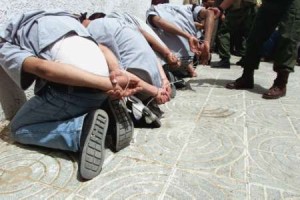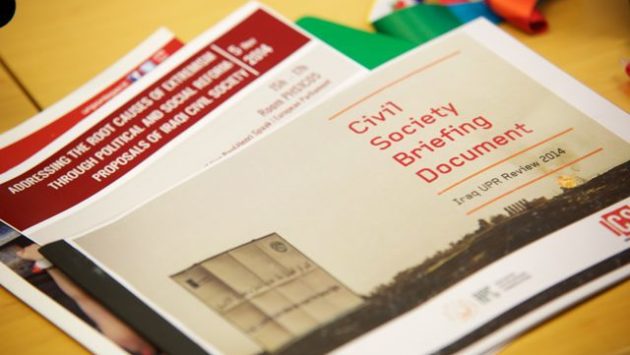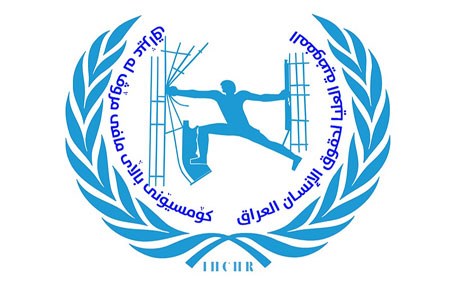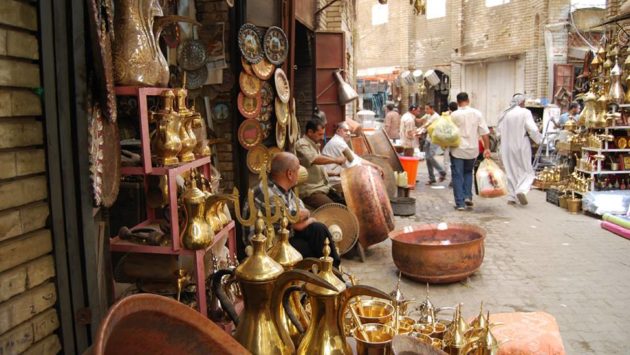Rape and torture prevalent in iraqi prison system
 niqash | Ahmed Muayed | Baghdad | 19.12.2013
niqash | Ahmed Muayed | Baghdad | 19.12.2013
The practice of torture to exact confessions from prisoners remains widespread in Iraq’s justice system. And investigators have apparently been able to practice it with impunity. But now even MPs from the ruling coalition are saying something needs to be done about it.
The 34-year-old began to cry as he spoke about his time in a Baghdad prison. He and his three brothers were arrested in the eastern province of Diyala and brought to Baghdad.
“At times, I was convinced that I was dead and that those who were beating and torturing me were demons from hell,” the man, who wished to be known only as Hamid, told NIQASH. “I was screaming so loud I hallucinated that my voice was heard on the other side of the universe.”
Hamid says part of the torture involved being stripped, hung from a pole, sprayed with cold water from a hose every half hour and beaten.
“They beat us with sticks and without mercy. And they kept repeating that they would take their revenge on us until we confessed to our crimes,” Hamid says.
Various international watch dog organisations agree that torture is still widespread in Iraq’s prisons.Human Rights Watch has released dozens of reports on torture in Iraq. Erin Evers, a Middle East researcher at Human Rights Watch, who was in Iraq, interviewing women in prison and officials, lawyers and others about the justice system, says torture in Iraqi prisons is “a systematic act”.
Evers says that the investigating officers rely on it to get confessions and that they get away with it because they are never held accountable for using torture, either by the Ministry of Justice or other authorities.
An Amnesty International report published in March this year, called Iraq: a Decade of Abuses, said that, “thousands of Iraqis are detained without trial or are serving prison sentences imposed after unfair trials, torture remains rife and continues to be committed with impunity.”
Many of the detainees are arrested on charges of terrorism, which has a very broad definition and carries the maximum penalty of death. This also means they can be kept in prison indefinitely.
Zaid Hashim, 31, says he was in the wrong place at the wrong time – he was nearby when a bomb that was supposed to hit local police forces in Mosul went off.
“I tried to explain to the investigator, who was questioning me late at night, that I was arrested for no reason other than being in this place at the wrong time and that there was no justification whatsoever for my arrest,” says Hashim, who is also using a false name because he fears repercussions. “But his only response was to beat me with cables and use a water hose on me for torture. When I refused to confess, he raped me twice with a wooden stick.”
Stories like this are common. “I was hung from the ceiling for hours, with my wrists tied behind my back. When I fainted from that and from beatings with a cable, I would lie on the ground for a short time and then they’d start beating me again,” says Sajad al-Kanani, a 27-year-old from the mainly Shiite Muslim neighbourhood of Sadr City in Baghdad.
Al-Kanani was released eight months after he was arrested because his lawyer submitted a medical report that said that the confessions al-Kanani had made, were made as a result of torture.
“When the investigators couldn’t make me confess, they threatened to bring my sisters into the prison,” al-Kanani recalls. “At that stage I confessed.”
Iraq acceded to the United Nations’ Convention against Torture and Other Cruel, Inhuman or Degrading Treatment or Punishment in 2011 but has yet to sign it. Additionally Iraq’s own Constitution bans the use of torture.
And now various political groups are now calling upon the government to take firm steps against the practice of torture in their own prisons. Many of these see the culture of impunity within Iraq’s justice system as one that is supported by the Prime Minister Nouri al-Maliki and his followers.
The same methods used by dictators everywhere – such as intimidation and torture – are being used here to make prisoners confess, MP Mushraq Naji, a member of the Shiite Muslim Sadrist bloc, which supposedly supports al-Maliki’s coalition but which in effect, has been critical of his regime over recent months.
Naji believes that the Ministry of Justice should create special oversight bodies which are not under any political party’s control to investigate allegations of torture in prisons.
The Sadrists have even appointed a lawyer to look into the allegations of torture by members of their community. Lawyer Abdul-Hussein says that even though Iraq has agreed not to use torture, that it is still widespread.
Activist Hassan Shaaban, who heads the Centre for the Legal Protection of Journalists, said that those who had been tortured should file lawsuits against those parties that they thought were responsible. “In this way we may be able to condemn those who do this and the victims could also receive some compensation,” he suggested.
“We cannot deny that there are some cases where torture has been used in our prisons,” admits MP Ali Shabar of the mainly Shiite Muslim Islamic Supreme Council of Iraq, who is also on the Parliamentary committee on human rights. The Islamic Supreme Council is another group that is supposed to support al-Maliki’s regime but they too have been critical of his governance of late.
The government “should follow up the human rights violations and it should not be relying on confessions extracted by force and torture,” Shabar said.




